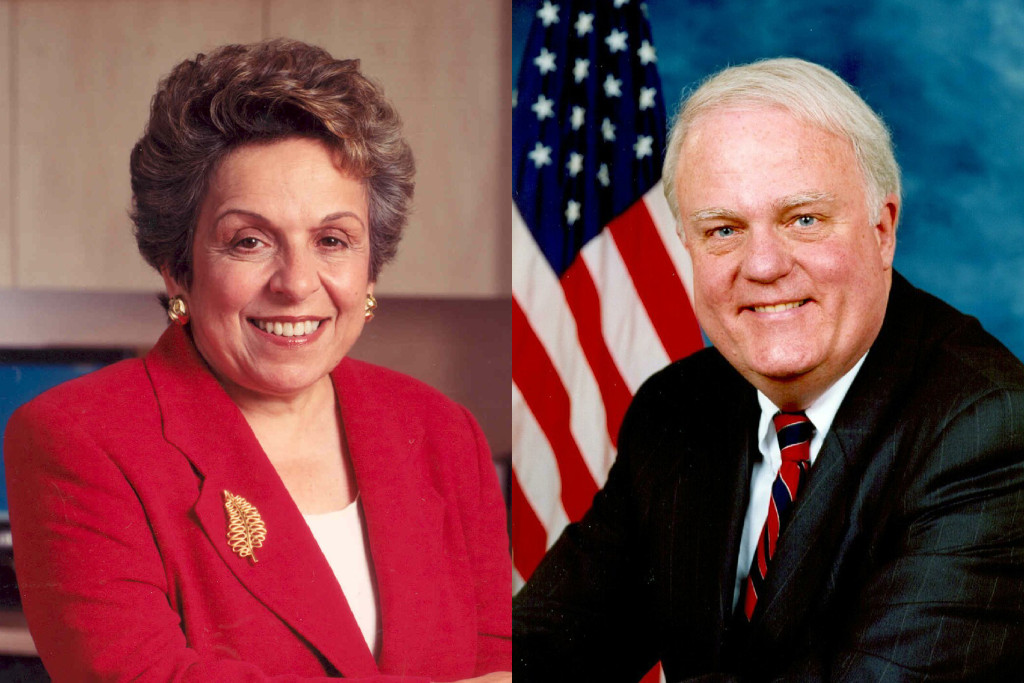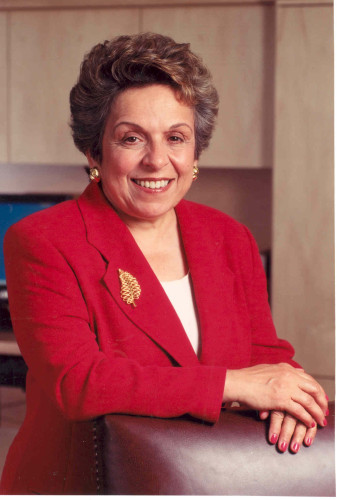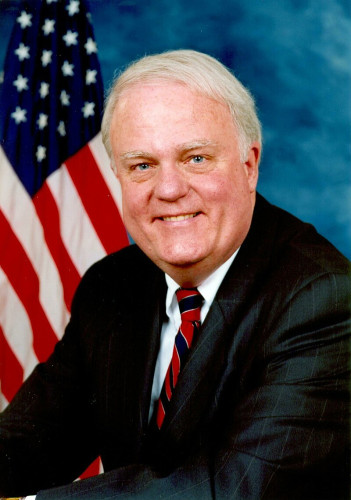Shalala, Sensenbrenner to be awarded honorary degrees from UW–Madison

Donna E. Shalala (left) and Jim Sensenbrenner (right) will receive honorary degrees from the University of Wisconsin–Madison at its spring commencement. In selecting recipients, the UW–Madison Committee on Honorary Degrees considers outstanding service to humanity globally, nationally or locally. The committee looks for achievements that have enhanced lives and that reflect a dedication to the Wisconsin Idea — the university’s bedrock principle that education should influence people’s lives beyond the boundaries of the classroom.
Donna E. Shalala, U.S. Secretary of Health and Human Services during the Clinton administration and a former chancellor of the University of Wisconsin–Madison, and Jim Sensenbrenner, who represented Wisconsin in the U.S. House of Representatives for 42 years, the longest congressional tenure in state history, will receive honorary doctorate degrees from UW–Madison at commencement this spring.
“It is a great privilege to be able to honor Dr. Shalala and former Rep. Sensenbrenner with one of the highest commendations the Wisconsin Board of Regents and this university can confer,” Chancellor Jennifer L. Mnookin says. “Both are extraordinarily accomplished individuals whose distinguished careers embody the highest ideals of public service.”
The honorary degrees will be conferred at the spring commencement ceremony for all doctoral, MFA and medical professional degree candidates at 5:30 p.m. Friday, May 9 at the Kohl Center.
In selecting recipients, the UW–Madison Committee on Honorary Degrees considers outstanding service to humanity globally, nationally or locally. The committee looks for achievements that have enhanced lives and that reflect a dedication to the Wisconsin Idea — the university’s bedrock principle that education should influence people’s lives beyond the boundaries of the classroom.
The Department of Political Science and the La Follette School of Public Affairs co-sponsored Shalala’s nomination. Sensenbrenner’s nomination was co-sponsored by the University of Wisconsin Law School and the La Follette School of Public Affairs.
Donna E. Shalala
During her many decades as a scholar, teacher and administrator, Shalala profoundly impacted public health policy, educational outcomes and the academic community, including at UW–Madison, where she was the first woman to lead a Big Ten Conference school and only the second woman in the country to head a major research university.
Her tenure as chancellor at UW–Madison from 1988 to 1993 was marked by a greater investment in world-class faculty, an increase in the number of students drawn to Wisconsin, the push for a strong public-private partnership to build new science facilities and the return of UW Athletics to national prominence, in part due to her strong advocacy. She was inducted into the UW Athletic Hall of Fame in 2018 for being a linchpin of this renaissance. Four-term Wisconsin Gov. Tommy Thompson praises Shalala in his letter supporting her nomination.
“When you look at these successes and so many others at the University of Wisconsin, along with her many years of dedicated leadership in academia and the highest levels of government, it is easy to understand why I believe Donna Shalala deserves an honorary doctorate degree from the greatest university,” writes Thompson, who later served as president of the Universities of Wisconsin (formerly the UW System).
Shalala stepped down as UW–Madison chancellor in January 1993 to become secretary of the U.S. Department of Health and Human Services, where she spearheaded initiatives that expanded access to healthcare, doubled the budget for the National Institutes of Health, and strengthened the Medicare and Medicaid programs. She served for eight years, becoming the longest-serving HHS secretary in U.S. history. Thompson succeeded her in the position.
Born in Cleveland, Ohio, Shalala earned a bachelor’s degree in history from Western College for Women. One of the country’s first Peace Corps volunteers, she served two years in Iran. She earned a PhD in political science and economics from The Maxwell School of Citizenship and Public Affairs at Syracuse University.
Shalala has held tenured professorships at Columbia University, the City University of New York, UW–Madison and the University of Miami, where she currently is the Trustee Professor of Political Science and Health Policy. She served as president of Hunter College of the City University of New York from 1980 to 1987 and as president of the University of Miami from 2001 to 2015. More recently, Shalala served for a year as president of the Clinton Foundation and was elected to the U.S. House of Representatives as a Democrat from Florida for one term, from 2018 to 2020.
One of the most honored academics of her generation, Shalala has been elected to seven national academies and was inducted into the National Women’s Hall of Fame in Seneca Falls, New York, in 2011. In 2008, President George W. Bush awarded her the Presidential Medal of Freedom, the nation’s highest civilian honor.
Jim Sensenbrenner
Few lawmakers have played a larger role in shaping public policy during the last half-century than Sensenbrenner, who earned his law degree from the University of Wisconsin Law School.
Sensenbrenner devoted his entire career to public service, first in the Wisconsin State Legislature, then as a Republican member of the U.S. House of Representatives representing a district covering most of Milwaukee’s northern and western suburbs. He served in the House for 42 years, from 1979 until his retirement in 2021. Among the many highlights of his career in Congress was his leadership in the reauthorization of and amendments to the Voting Rights Act, his many years of work on national security and civil liberties issues and his support of legislation strengthening the Americans with Disabilities Act.
“During his time in public office, Jim demonstrated all the hallmarks of a true American statesman,” writes former Speaker of the House Rep. Paul Ryan, in a letter supporting Sensenbrenner’s nomination. “He made an indelible mark on our legislative branch, improved our nation’s laws in a variety of areas and consistently fought with character, integrity and passion on behalf of the people of Wisconsin.”
Sensenbrenner was born in Chicago and shortly thereafter moved to Shorewood, Wisconsin, with his family. He earned a bachelor’s degree in political science from Stanford University before returning to Wisconsin for law school.
Sensenbrenner was first elected to the Wisconsin State Assembly in 1968, then won a special election for the Wisconsin State Senate in 1975. He was elected to his first term in the U.S. House of Representatives in 1978.
During his time in Congress, Sensenbrenner served as chairman of the House Committee on Science, Space, and Technology (1997-2001), and chairman of the House Committee on the Judiciary (2001-2007). His many legislative achievements while House Judiciary Committee Chairman include the USA Patriot Act, the REAL ID Act and an extension of the Voting Rights Act. He served as a House manager in four impeachment trials, including the trial of President Bill Clinton. He worked across the aisle to pass the Comprehensive Opioid Abuse Reduction Act and the Due Process Act. In 2013, he helped sway his Republican colleagues to support the USA Freedom Act, undoing what he saw as the excesses of intelligence gathering enabled by the USA Patriot Act.
Among his most memorable traits as an elected official, Sensenbrenner was widely known for his accessibility to voters — he averaged more than 100 in-person town meetings a year in his district.
For more information and updates on spring commencement, please visit the UW–Madison commencement website.
Tags: commencement






